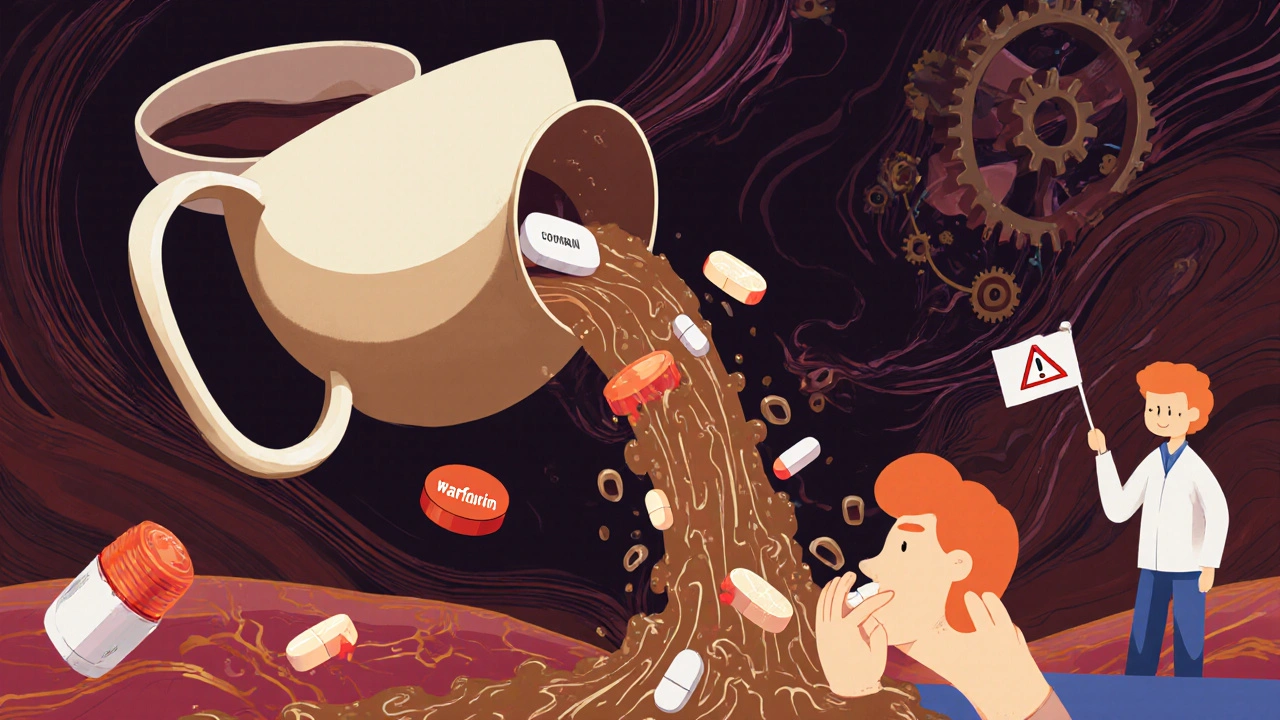Caffeine Drug Interactions: What You Need to Know Before You Drink
When you sip coffee or energy drinks, you're not just getting a boost—you're introducing a powerful caffeine, a central nervous system stimulant found in coffee, tea, energy drinks, and some medications. Also known as 1,3,7-trimethylxanthine, it affects how your body processes many common drugs. It’s not just about feeling jittery. Caffeine can change how fast your liver breaks down medications, raise your blood pressure, or make side effects worse—even when you’re taking them exactly as prescribed.
Many people don’t realize that antibiotics, like ciprofloxacin and norfloxacin, can slow down how quickly your body clears caffeine, causing it to build up and lead to anxiety, fast heartbeat, or trouble sleeping. The same thing happens with some antidepressants, particularly SSRIs like fluvoxamine, which can trap caffeine in your system. If you’re on one of these, even one cup of coffee might feel like three. Then there’s blood pressure meds, like beta blockers or calcium channel blockers. Caffeine can cancel out their effects—or make your heart race so hard you end up in the ER.
It’s not just prescription drugs. Over-the-counter pain relievers like acetaminophen and NSAIDs can also interact with caffeine, especially when combined in cold or migraine formulas. Some people take caffeine to make their headache pills work faster—but that’s a gamble. Too much caffeine with these drugs can spike your blood pressure or damage your liver. And if you’re using stimulants for ADHD, like Adderall, mixing them with caffeine is like pouring gasoline on a fire. Your heart rate and anxiety can go through the roof.
You might think you’re safe if you only drink one soda a day. But caffeine hides in unexpected places: chocolate, weight loss pills, pre-workout powders, even some allergy meds. And if you’re over 65, pregnant, or have a heart condition, your body handles it differently. A small amount that’s fine for someone else could be dangerous for you.
What you’ll find below are real stories and science-backed guides from people who’ve been there—how caffeine messed with their thyroid meds, why their anxiety spiked after switching painkillers, and how one man avoided a hospital visit by simply asking his pharmacist about his morning coffee. These aren’t theory pieces. They’re practical, no-fluff checks on what’s really happening when caffeine meets your medicine.
Caffeine and Medication Safety: What You Need to Know About Dangerous Interactions
Caffeine can interfere with medications like warfarin, levothyroxine, and antidepressants, reducing effectiveness or increasing side effects. Learn which drugs are risky, how to avoid dangerous interactions, and what real patients are experiencing.
More
